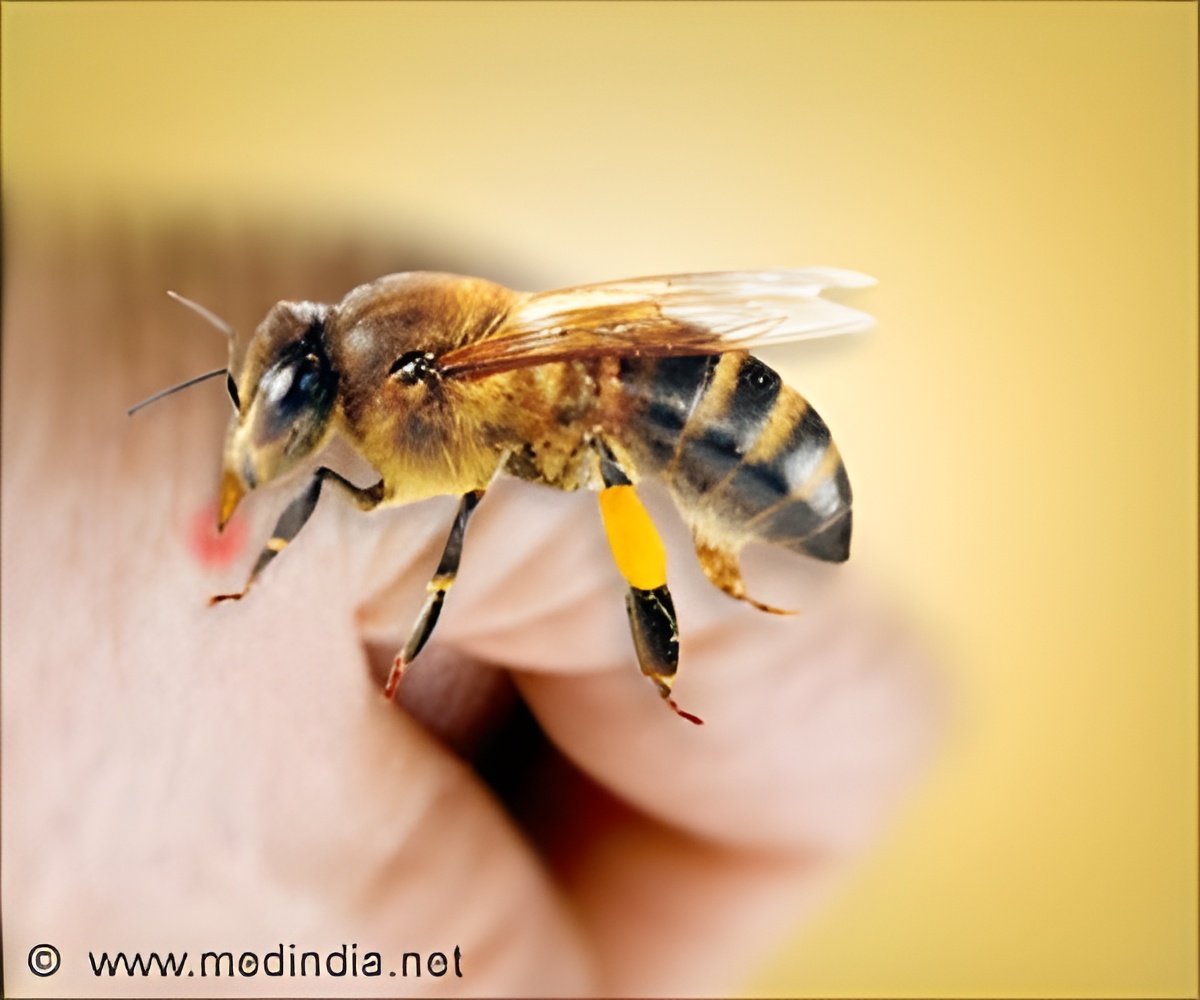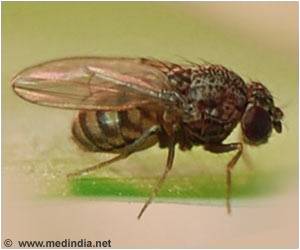The allergic reactions to bee stings may actually serve as a protective defence mechanism, a new study claims

"Everyone who ever witnessed or even experienced an anaphylactic reaction to a bee or a wasp sting will wonder why evolution did not get rid of such a potentially deadly immune reaction," added Martin Metz of Charité-Universitätsmedizin Berlin. "We have now shown in mice that the development of IgE antibodies to honeybee venom and also to the venom from a poisonous snake can protect mice to some degree from the toxic effects of the venoms."
It is apparently only when allergic reactions run amok that they cause serious problems.
Metz and his colleague Stephen Galli of Stanford University School of Medicine found that mice injected with amounts of honeybee venom similar to that which could be delivered in one or two stings developed a specific immune response, which subsequently increased their resistance to potentially lethal amounts of venom. The researchers observed a similar protective immune response in the mice following exposure to poisonous snake venom. In both cases, that protective effect was attributed to IgE antibodies, which are produced in response to a broad range of environmental antigens, many of them seemingly harmless.
The common venom ingredient and major allergen in bee venom, PLA2 (phospholipase A2), is an enzyme that wreaks havoc by destroying cellular membranes. In the second study, Medzhitov and his colleagues showed how PLA2 induces the type 2 immune response in exposed mice, to afford the animals later protection against near-lethal doses of damaging enzyme.
It seems as though our bodies might know what they are doing after all. But, if immune reactions to bee stings are advantageous, why then do some people develop anaphylaxis?
Advertisement
Advertisement









